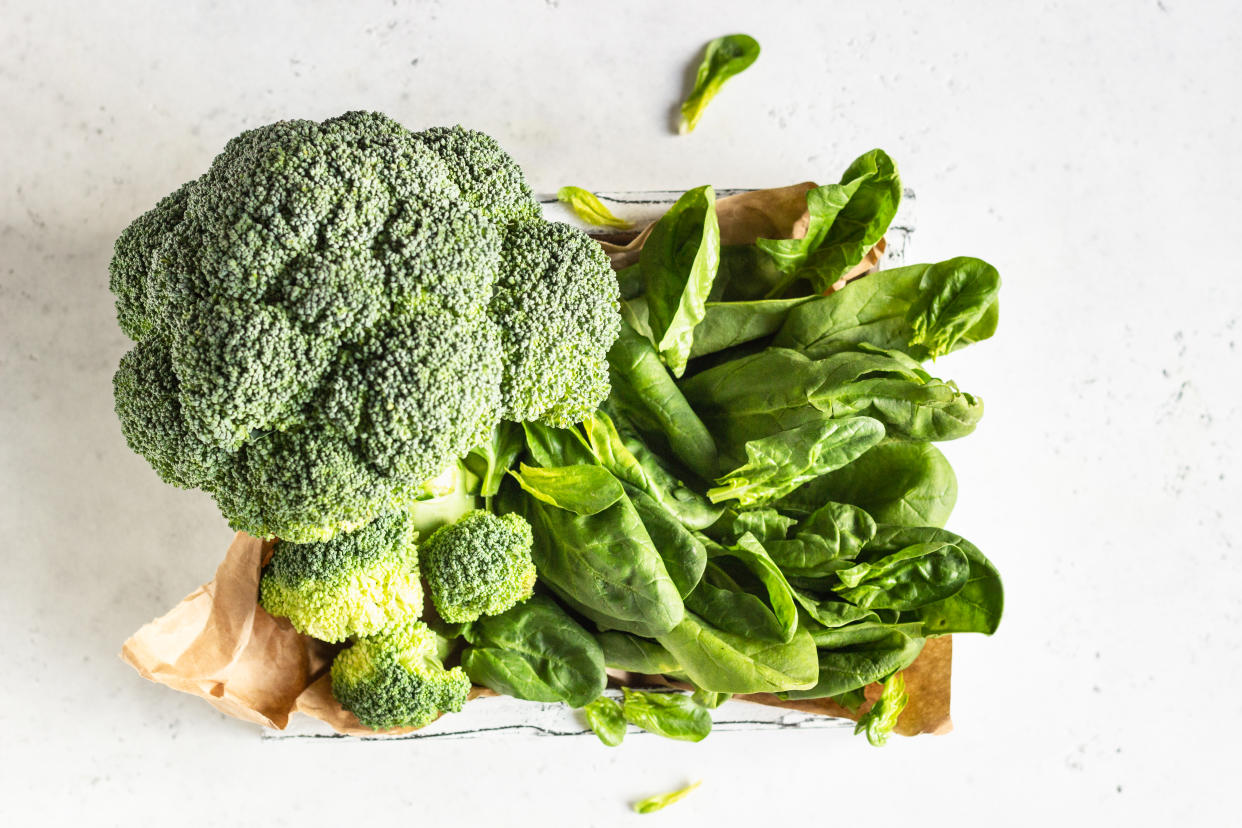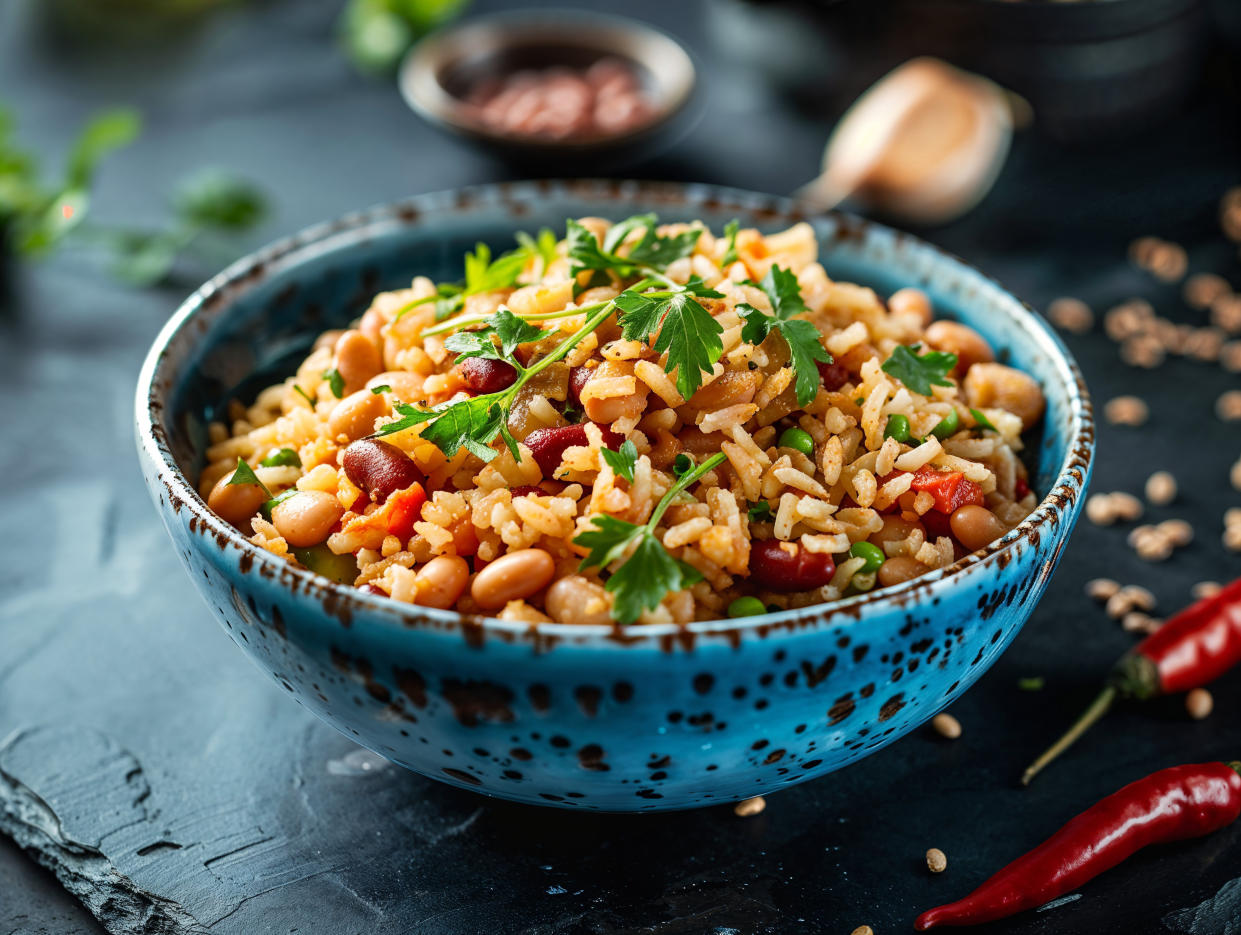Eating too many of these healthy foods could be harmful, expert warns

While you may think that eating foods such as kale, broccoli, and eggs will put you on the fast track to health, one nutrition expert has warned that overconsumption of these foods could result in some negative side effects.
"Sometimes too much of a good thing can have negative consequences. Not having enough variety in your diet can be harmful, even if the foods you eat are perceived as healthy," Ashleigh Tosh of Prepped Pots, says.
"Overconsuming certain nutrients can cause digestive issues, vitamin toxicity and even unintended weight gain."
Instead, Tosh says it’s important to ensure your diet includes a mix of starchy carbohydrates, proteins, vegetables, fruits, and healthy fats.
"This variety is essential for ensuring a well-rounded intake of nutrients and preventing dietary boredom," she adds.
So which seven foods should you be mindful about overconsuming? Read on to find out.
Eggs
While eggs are high in protein, they are also high in dietary cholesterol, Tosh explains, which is why they should be consumed in moderation.
"Eating an excessive amount of eggs may lead to an increase in LDL (bad) cholesterol levels which is associated with an increased risk of heart disease," she adds. "For most healthy adults, it's safe to eat one to two eggs per day."
Avocado
Avocados are a great source of healthy fats, but they contain a higher amount of calories than other fruits and vegetables. This is why Tosh recommends eating avocados in moderation as excessive consumption can lead to unintended weight gain.
For reference, one quarter of an avocado is considered to be a single serving size.

Kale, broccoli, and Brussels sprouts
Broccoli, Brussels sprouts, and kale are all cruciferous vegetables, which are great sources of folate and vitamin K, but are also high in soluble fibre.
While fibre is an important nutrient, and one Brits need more of, Tosh says excessive amounts can lead to excess gas production and can cause gastrointestinal discomfort.
"They also contain thiocyanates which can interfere with the body’s ability to absorb iodine," she adds.
Protein products
"Protein products like powders, bars, and shakes are popular among fitness enthusiasts for muscle building and recovery," Tosh explains.
"An excessive amount of these protein supplements can cause constipation and dehydration and can also strain the kidneys. Most healthy adults can tolerate eating 2g of protein per kg of body weight per day."
This means, for a 70kg person, they should eat no more than 140g of protein per day. The average protein intake for British adults is currently 76g per day.
Tuna
Fatty fish such as tuna can contain high levels of mercury, Tosh says, which can lead to several adverse health effects.
"Pregnant women and young children are particularly affected by this so they should limit their intake of seafood containing mercury to no more than two times per week," she adds.

Beans
"Beans are also high in fibre which means that eating them too often can lead to constipation, gas, and bloating," Tosh says.
"If you’re not used to eating much fibre then it’s best to slowly increase the amount you consume and drink lots of water to combat the negative effects."
Brazil nuts
Brazil nuts contain high levels of selenium, which can be toxic when consumed in large amounts.
Tosh adds: "The maximum safe intake of selenium for adults is about 300 micrograms/day which is just four to five Brazil nuts."
Health: Read more
What are the health benefits of olive oil and why is it so expensive? (Yahoo Life UK, 4-min read)
What is 'cortisol belly' and how can reducing stress fix it? (Yahoo Life UK, 4-min read)
Fasting to lose weight could change how your brain works, study finds (Yahoo Life UK, 3-min read)


